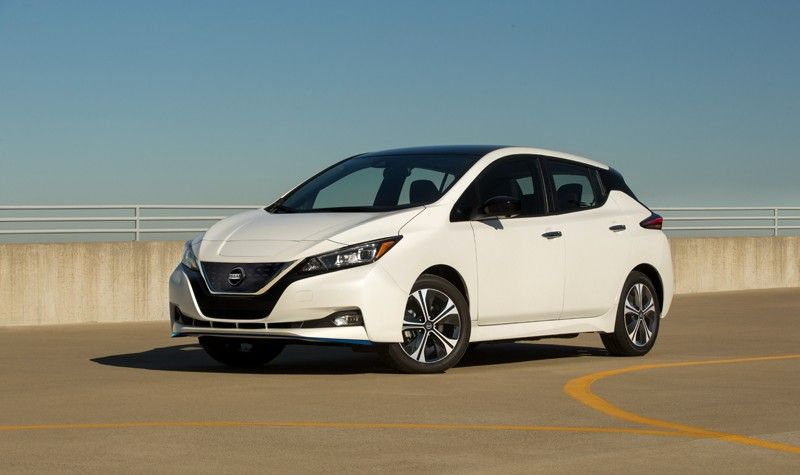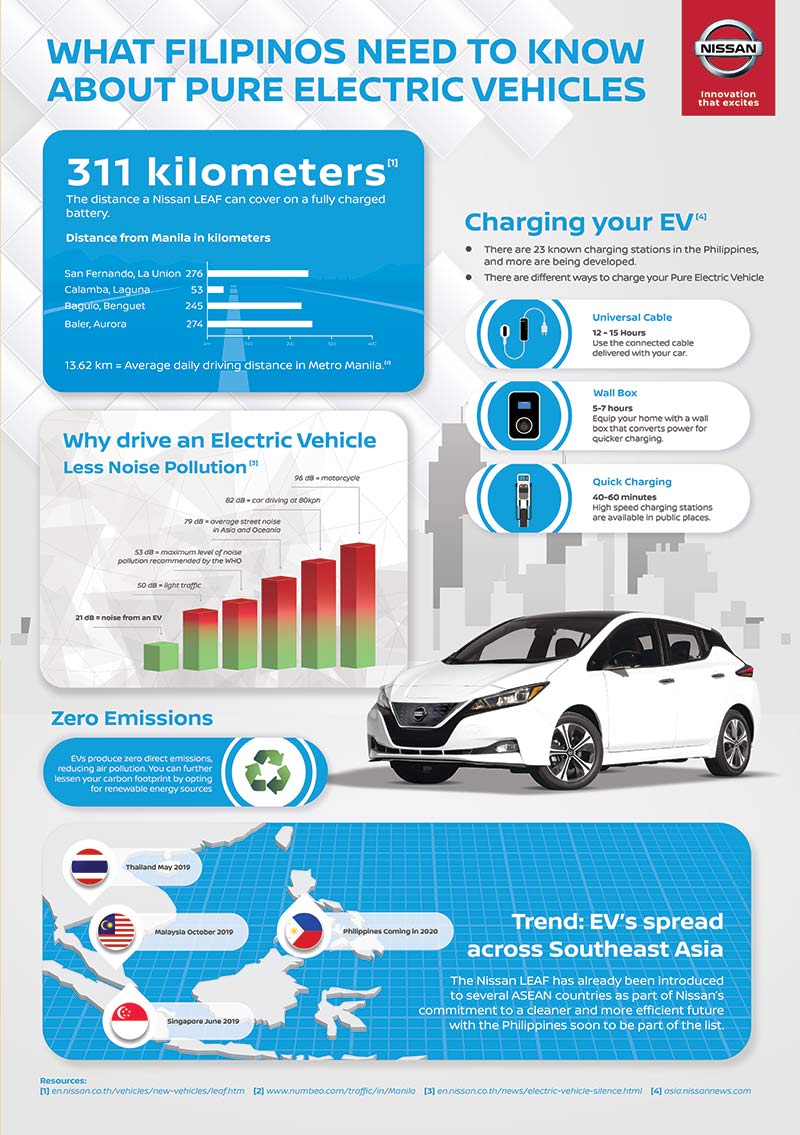What Filipinos need to know about electric vehicles

MANILA, Philippines – The automotive industry globally is going through a major shift in terms of electric mobility.
Locally, the Philippines is undertaking many initiatives in terms of government support and additional infrastructure to cater to this automotive evolution. Additionally, more consumers are beginning to see the value of electric vehicles and their positive effects on congestion, and noise and air pollution.
Is the Philippines ready for electric vehicles?
Studies seem to indicate that it is. According to a recent Frost & Sullivan survey, 46% of Filipinos are considering one as their next vehicle purchase.
Nissan, the creators of the world’s best-selling electric car, the Nissan LEAF, is leading the conversation in Asia around electrification.
As the Japanese automaker gears up for the introduction of the LEAF in the Philippines, here are some key things Filipinos need to know about electric vehicles:

1. Range
The Nissan LEAF can cover 311 kilometers when fully charged. That’s the distance between Manila and San Fernando, La Union.
This allows drivers to easily travel to Calamba, Laguna (53 kms), Baguio, Benguet (245 kms), or Baler, Aurora (274 kms) and not have to worry about completely losing battery charge while on the road. For reference, the average driving distance around Metro Manila per day is only 13.2 km.
2. Charging
There are three primary ways to charge an EV, according to consumer preference and ease.
Charging the Nissan Leaf to full at home, usually overnight with a standard universal cable, can be done right away and takes 12 to 15 hours. A wall box can also be installed at home or in any establishment and takes between five to seven hours per charge session.
There are currently 23 public charging stations in the Philippines, and more are being added.
3. Environmental impact
Electric vehicles produce zero direct emissions, which means they are a good environmental choice. What’s more, electric vehicles allow a reduction in noise pollution, a growing issue in urban centers. A Nissan LEAF has a running noise level of 21 decibels, compared to the average 82 decibels that a car produces when driving at 80 km per hour.
4. Trend
To support sustainable initiatives and reduction of emissions across Southeast Asia, Nissan has already introduced the Nissan LEAF to several countries like Thailand, Malaysia, and Singapore. In 2020, the Philippines will be the next country to join the electric mobility movement.
“Nissan is committed to meeting Filipinos’ demand for sustainable, safe, and smart mobility by bringing the Nissan LEAF to the country. We will continue to support EV adoption in the Philippines by educating the public on the advantages and benefits of EVs for consumers and for the environment,” shares Atsushi Najma, president and managing director for Nissan Philippines.
- Latest































